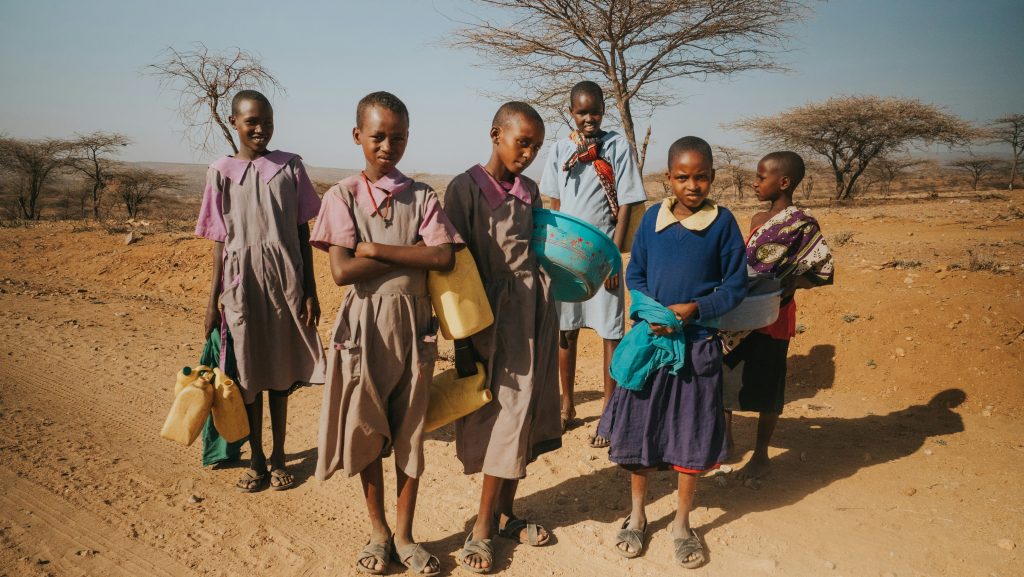Nearly one in three children in Africa currently are malnourished and failing to thrive. Why are we not hearing about it?

Students in Africa walk for food and water supplies. (Photo: Tucker Tangeman on Unsplash)
It was nearly two years ago that I added ‘Famine in Africa’ to my prayer list. There may have been some item hidden in the back pages of the news around that time, but my awareness more likely came from emails from an aid agency. While that famine continues to increase, I have heard nothing in the media since.
World Vision reports that the progress to improve food security in Africa since 2000 reversed abruptly in 2019. Since the onset of the COVID-19 pandemic, 57 million more people now face hunger. The current estimate is that 20% of the African population is undernourished, and approximately 30% of children on the continent suffer from stunted growth due to malnutrition.
Tearfund Australia’s report on global food insecurity reports a 9% increase since 2022, most of which is in Africa. In Sudan alone there are 6.3 million people “facing high acute malnutrition”, “extreme loss of livelihood assets”, or “resorting to emergency coping strategies.” And in Zambia 17.5 million people are unable to meet minimum nutrition requirements.
We see on the nightly news live video of floods and fires and the aftermath of earthquakes and cyclones. We read daily of the disaster of war in the Middle East and Ukraine. We are inundated with local reports of domestic abuse, homelessness and more. And so we should be. But doesn’t the massive ongoing crisis in Africa deserve a share?
I suspect the reasons are mixed and complex. Disasters and war are easier to ‘capture’ than long years of decreasing food security. Even at home in Australia, eye-catching events like fires and floods gain far more attention than the slow but vicious grind of drought.
It’s also easier for the media to grab international reports from other news agencies than to go looking for themselves. That’s why we get so many more strange happenings in the media-saturated United States than from anywhere else.
But whatever causes the relative weight given to news items, I fear that we give the implication that some people are more valuable than others.
I remember reflecting on this way back in 1987. On March 6 that year, the worst ever English Channel ferry disaster occurred. 193 people were killed when the Herald of Free Enterprise car ferry capsized shortly after leaving port in Belgium. It rightly occupied the front pages for some time.
But another passenger ferry disaster that same year failed to attract similar attention, despite 20 times the number of fatalities. The MV Doña Paz sank following a collision with an oil tanker in Philippines waters, with only 26 of the over 4,000 passengers surviving, it was relegated to a short column far from page one. It made me wonder. Do European lives count for so much more than Filipino lives? Why this distortion in news coverage?
I wonder the same sort of thing now. Are African lives so cheap? Is the grinding disaster of poverty and malnutrition not worth reporting? Or are we just more comfortable to turn a blind eye? Out of sight, out of mind? I hope not.
